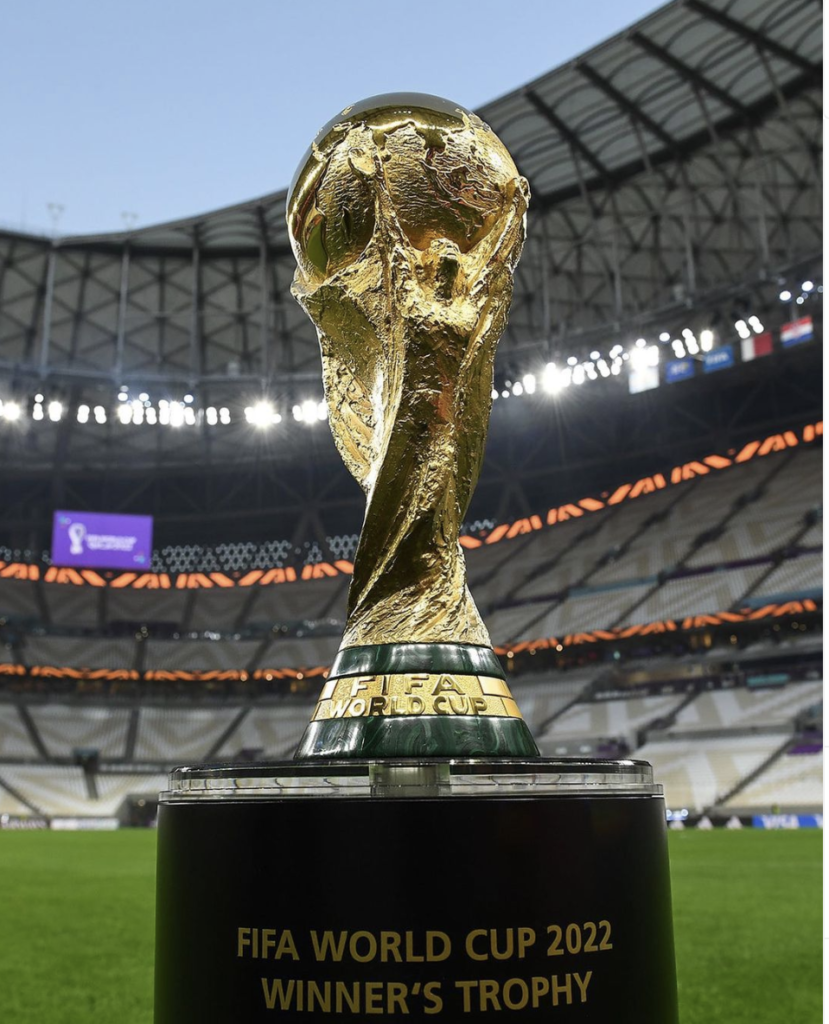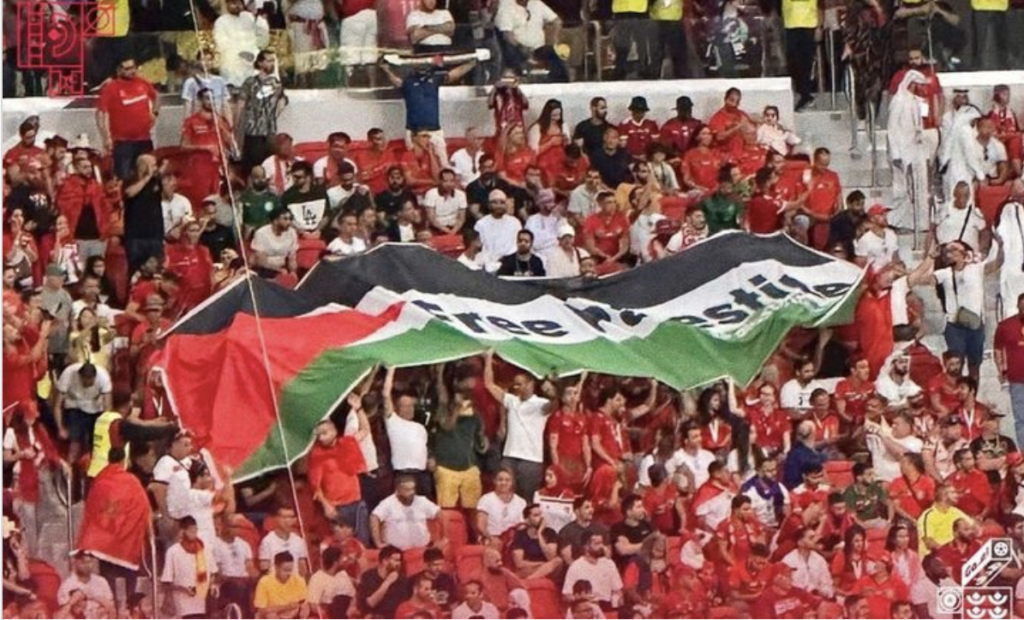Lessons Learned from the 2022 World Cup in Qatar

By Salma Heram / Arab America Contributing Writer
As we begin a new year and reflect on the past one, we recognize the 2022 World Cup as an important moment for Arabs across the globe. Hosted by an Arab country for the first time ever, the 2022 World Cup in Qatar garnered incredible publicity as one of the most anticipated events of the year. Soccer fans from all over the world visited Qatar, many of whom were setting foot in the Arab world for the first time. With the rise of social media platforms like Instagram, Twitter, and TikTok – one of which did not exist during the previous World Cup in 2018 – the fan experience was more documented and shared than ever before.
Because of this, even those unable to travel to Qatar could experience part of the excitement, and fans on the ground were more easily able to share their thoughts via social media. As such, the 2022 World Cup has, in several polls, been voted one of the best of the 21st century. Qatar had a huge responsibility to fulfill in taking on the role of the World Cup host and clearly went above and beyond. So what exactly made the 2022 World Cup impactful, and what role did Qatar’s identity as a Muslim Arab country play?
Generosity and Hospitality in Arab Culture
Arabs are undeniably some of the most generous people and our culture is one that emphasizes great hospitality and the honoring of our guests. These cultural characteristics were prominent throughout Qatar during the World Cup. Countless videos and visitor accounts spotlighted the kindness that Qatari locals showed international fans. From handing out water and snacks to worn-out fans after an exciting day of matches to inviting strangers into their homes for meals, many in Qatar exhibited the ultimate display of hospitality and honored the visitors of their country.
This was also a time of beautiful cultural exchange. As this was the first World Cup game in the Arab world, many fans were excited to partake in Arab culture, and Qataris delivered. The stadiums were filled with fans wearing the ghutra and egal, a cultural headdress worn by Arab men, in the colors of their country’s flags. As this is an intricate way of tying a scarf that requires practice, many Qatari locals taught their international brothers how to wear it. Furthermore, many Arab locals and fans taught foreign fans various Arabic phrases and customs to aid them during their time in Qatar. As such, it is clear that the Arab world was thrilled to be sharing its culture with the rest of the world. Culminating with the presentation of the bisht to Lionel Messi after Argentina’s win, the 2022 World Cup was a symbol of Arab hospitality and generosity, and an excellent reminder for others to honor their guests.
Families Felt Safer
One unique aspect of the 2022 World Cup is that no alcoholic beverages were sold at the stadium sites or within the ticketing perimeter, a stark difference from previous World Cups. This was a point of concern and disappointment for many soccer fans used to drinking at games and received a plethora of criticism from Western media. However, women, children, and families overall had a much better time enjoying the game because of this decision. Because there were no safety concerns regarding alcohol use, women felt safe to take part in and enjoy the fan festivities well past midnight. Women were able to take their children to games without needing a man to feel safe, making the World Cup more accessible to everyone, including single women and mothers.
Qatar has shown the world that football can be enoyed without alcohol, and women can enjoy it without fearing for their safety. The bar has been set very high, and now the world will have to work very hard to match it.”
Hanoof Abdullah, Kuwaiti football ban / Al Jazeera
However, local women in Qatar have emphasized that “safety is not a new phenomenon linked to the World Cup.” Informed by Muslim and Arab values, along with Qatar’s own strict security measures, the country’s capital city of Doha, has been ranked the second safest city in the world twice in a row. As such, locals and foreigners alike have been able to experience the great sense of community that the Word Cup brings while being immersed in Arab culture, without having to worry about their safety or being harassed by drunk fans.
A Display of Arab Unity

In a region riddled with conflict and complicated relations, Qatar was able to provide a sense of unity to the Arab world via the World Cup– a feeling that its people have craved for some time. With four Arab countries playing in the 2022 Cup, Arab fans did not lack teams to support, even if their own country was not playing. As Qatar, Tunisia, and Saudi Arabia were defeated one after another, it seems the entirety of the Arab world stood in solidarity with Morocco as it made its way to the semifinals, being the first Arab and African country ever to do so.
The Moroccan team became the pride of not only its own country but the entirety of the African continent as well as the Arab world. The players themselves put on a beautiful display of their culture, from waving the Palestinian flag after almost every game to honoring their mothers to praying on the field to thank Allah for their success. All of these actions garnered attention, whether it was criticism from western media or pride and approval from the Arab community. It is clear that Qatar went above and beyond the call of duty as the first Arab nation to host the World Cup.
Looking Ahead
The 2022 World Cup in Qatar displayed Arab and Muslim culture on the international stage in a way that was sorely missing. It showed the world the beauty of Arab culture and provided a sense of unity within the Arab world. Qatar’s impeccable organization and hosting will be difficult to match but perhaps will open the door for future World Cups to be hosted by Arab nations.
Check out Arab America’s blog here!








